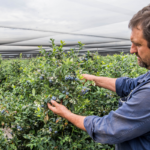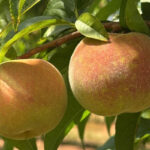Australian researcher conducts world's first pineapple microarray

A University of Queensland study has revealed new information about the genetics of pineapples, providing insights into various biological and nutritional properties of the tropical fruit. 
Dr Jonni Koia's work, published in the scientific journals BMC Plant Biology and Plant Molecular Biology, identified genes in "numerous" processes including ripening, redox activity and organic acid metabolis.
"In addition, my research also identified genes conferring nutritional and health benefits, such as those involved in anti-oxidant, glutathione and vitamin C production," Koia said in a release.
"The results generated from my study have wide-ranging use across agriculture and food science, and could be incorporated in the future development of other important food and plant crops."
The study also characterized two genomic regions, called promoters, that control gene activity within the cell. The release said these are now free to be used for basic research and the plant improvement
"The demand for new plant-based gene promoters without patent protection is of particular interest among the research and Agbiotech community," Koia said.
The release added that Koia's research could have health outcomes, potentially leading to improved nutritional and dietary intake of food crops to relieve chronic diseases such as obesity, diabetes, cardiovascular disease and cancer.
The study was conducted at the Plant Genetic Engineering Laboratory under the direction of Professor Jimmy Botella.












































